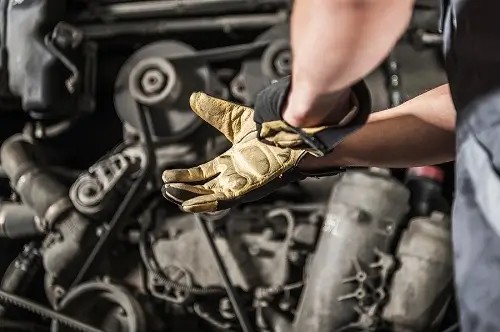 Mechanic Prepares for Diesel Engine Repair: Understanding Diesel Car Maintenance Costs
Mechanic Prepares for Diesel Engine Repair: Understanding Diesel Car Maintenance Costs
When considering a new vehicle, the debate between diesel and gasoline engines often arises. Diesel cars boast numerous advantages, yet concerns about higher repair and maintenance expenses frequently surface. It’s a common perception that diesel engines are generally more expensive to fix and maintain. But is this always the case? While some aspects might suggest higher costs, the bigger picture reveals a more nuanced reality, particularly when considering the overall lifespan and durability of diesel vehicles. Let’s delve into a comparison of repair and maintenance costs between diesel and gas engines to understand the full picture.
Diesel Engine Longevity and Fewer Shop Visits
One of the key areas where diesel vehicles can actually save you money on repairs is through their inherent durability. Diesel engines are built to last, often requiring fewer trips to the repair shop compared to their gasoline counterparts. While routine maintenance tasks like oil changes are generally similar in frequency to gasoline vehicles, diesel engines operate without spark plugs. Instead of relying on spark plugs to ignite the fuel-air mixture, diesel engines use compression ignition, where the mixture is compressed to such a high degree that it generates enough heat for combustion. This difference in design contributes to the robustness and longevity of diesel engines.
For those who frequently engage in heavy-duty activities like towing, manufacturers might recommend more frequent maintenance schedules for diesel vehicles. However, it’s crucial to remember that gasoline-powered vehicles also necessitate increased maintenance when subjected to demanding conditions such as frequent towing or driving in challenging terrains like mountains.
The Endurance Factor: Longer-Lasting Diesel Engines
Diesel engines, while both being internal combustion engines like gasoline engines, are engineered for extended lifespans. The internal components of diesel engines are manufactured to be significantly stronger to withstand the immense pressures of high compression. In contrast, gasoline engines, which utilize spark ignition, do not require the same level of heavy-duty internal parts.
This robust construction means that while the initial purchase price of a diesel vehicle might be higher, and individual diesel parts can be more expensive, they are less prone to breakdowns and wear out at a slower rate than components in gasoline engines. On average, a gasoline-powered vehicle might require significant repairs around the 200,000-mile mark. Remarkably, a diesel vehicle can often reach a million miles before needing extensive repairs, highlighting their exceptional endurance and potential for long-term cost savings.
Diesel: A Worthwhile Investment?
In conclusion, investing in a diesel engine can be a financially sound decision, especially if you plan to own the vehicle for a decade or more, frequently tow heavy loads, or regularly drive under severe conditions. While specific diesel repairs might carry a higher price tag when needed, the infrequency of these repairs, coupled with comparable routine maintenance to gasoline engines, often balances out the overall cost over the vehicle’s lifespan. For those prioritizing longevity and durability, the slightly higher repair costs for diesel engines might be a worthwhile trade-off for the long-term reliability and robust performance they offer.
